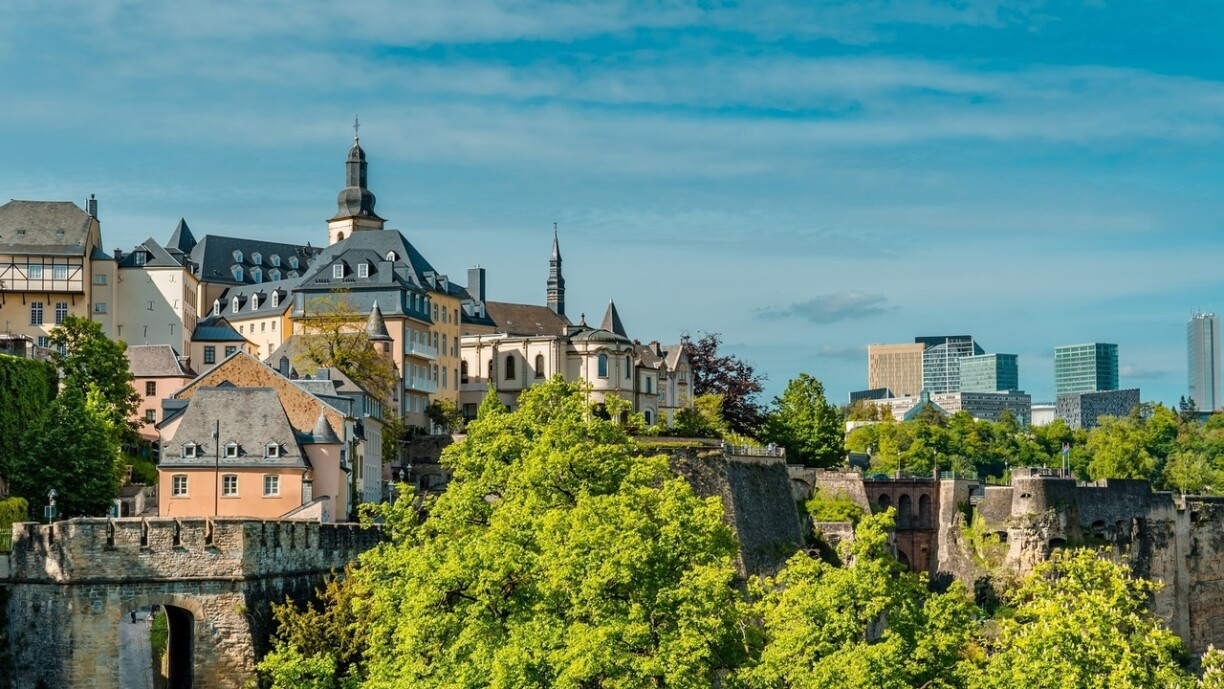
Laney Jane MacCormack recounts her experience of moving to Luxembourg in 2017 as what’s often referred to as a ‘trailing spouse’. Her partner had a professional opportunity here, and she was fortunate to have a flexible career that allowed her to initially split her time between Luxembourg and London.
What is your experience of integrating as an expat in Luxembourg?
“At first, integration felt relatively smooth – mainly because I wasn’t here full-time right away. For about two years, I was still working in London, which eased the transition. However, when the pandemic hit and I stopped travelling, I began to feel the distance from my home country more keenly. Without nearby family or long-standing friendships, it could feel isolating.
Over time, I learned that finding connection here requires a bit of courage and persistence. It’s important to keep showing up, even if the first few encounters don’t lead to deep friendships. Eventually, you do find a small circle where you feel at home.
As someone with a creative spirit, I found joy in discovering vintage markets and exploring cultural events – often just across the border in neighbouring cities. While Luxembourg has some interesting exhibitions and events, it really helps if you’re willing to travel a little to find inspiration.”
Do you think Luxembourg is an attractive place to live for families?
“Luxembourg can be a great place for families, particularly for those with higher incomes. The quality of life outside the city is lovely, and many communes have good infrastructure, including transportation, and childcare options like maison relais.
That said, affordability can be a real concern for families on lower incomes. Housing and childcare costs add up quickly, and many families are beginning to explore living across the border or in more affordable areas.
If you have support – financially or through extended family – it’s easier to navigate challenges like limited maison relais availability or long school lunch breaks. But without that safety net, it can be difficult to maintain a balance between working and parenting. I’ve seen people fall into a kind of catch-22: not earning enough to afford help, and not able to work due to lack of childcare.”
What do you like about living in Luxembourg and what has been challenging?
“There’s a lot to appreciate – Crémant, castles, and the incredible beauty of the Mullerthal region, to name a few. Wanting to support others through the ups and downs of settling in, I started volunteering with the British Ladies Club. We organise events to help newcomers – and even long-term residents – build social connections.
From these experiences, I’ve seen just how common it is for people to feel isolated or homesick, especially if they don’t quickly find a supportive community. That inspired me to create ‘The Little Village of Luxembourg’, which is a group aimed at fostering those connections.
On the professional side, I’ve been involved in the ‘Migrant in Fashion’ programme, which supports creative expats in finding ways to work in their field. Starting a business here comes with significant hurdles – financial and administrative –which unfortunately means many creative projects stay unofficial or part-time.
In terms of challenges? Language can be a big barrier, particularly if you haven’t grown up multilingual. English is widely spoken socially but isn’t an official language for administrative matters, which can be a shock. If you’re job hunting outside the English-speaking expat bubble, opportunities are limited unless you speak at least one national language fluently.
Professional qualification recognition can also be difficult – some highly skilled professionals end up in entry-level roles or unable to work in their trained field. While starting a business is an option, it’s important to be aware of the high initial costs and regulatory demands.”
Do you have any advice for newcomers who are starting their expat journey?
“Plan well. Make sure you understand what your life might look like if your circumstances change – if you lose your job, or if you need to navigate administrative systems without speaking French, German or Luxembourgish. Financially, I’d recommend having savings to cover at least 2–3 years of rent and living costs, especially if you’re coming without a job in place.
If possible, secure a permanent contract before you arrive, ideally with a salary that gives you some flexibility. If you’re coming as a couple, have open conversations about long-term planning – what happens if one of you wants or needs to return home, particularly if you have children. These aren’t easy topics, but they’re vital.
And most importantly – give yourself time. Integration takes effort and patience, but with persistence and community support, it can be rewarding.